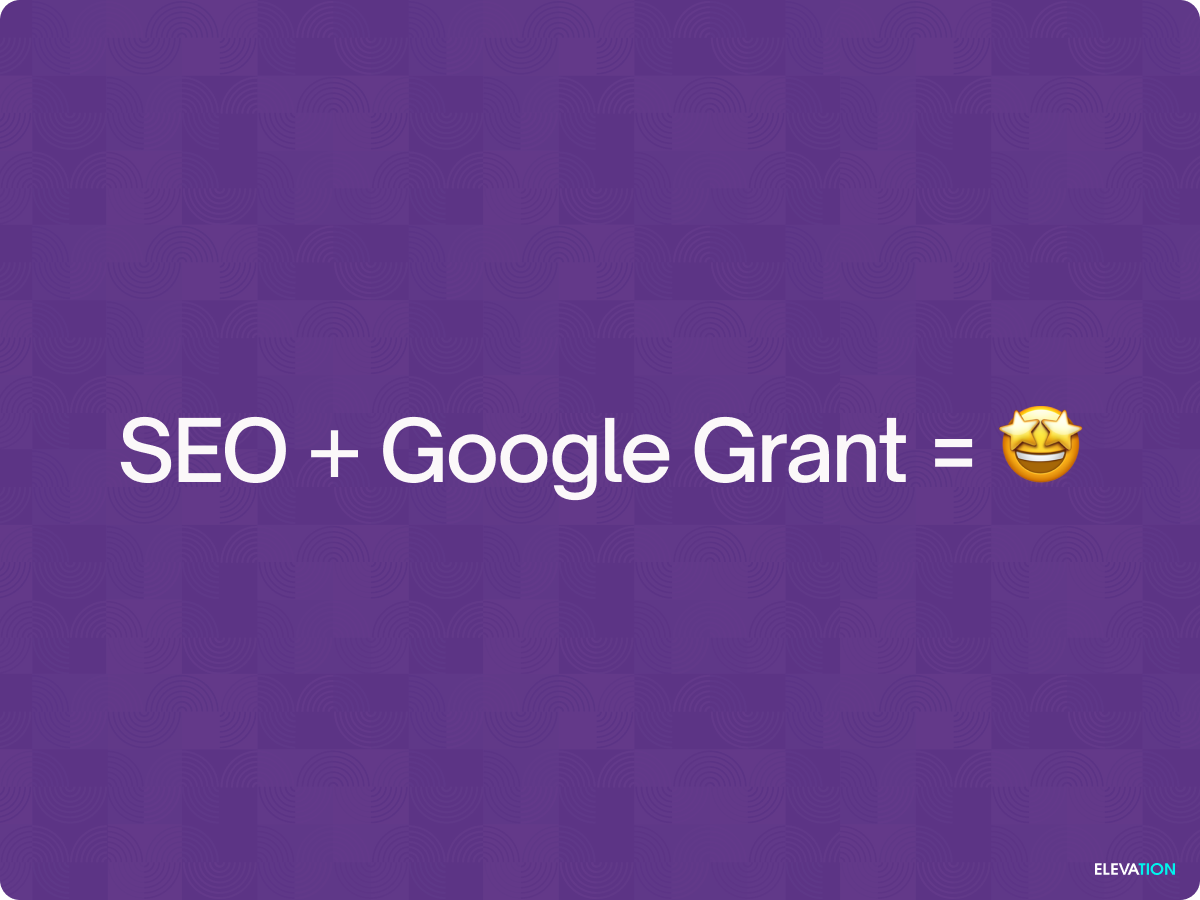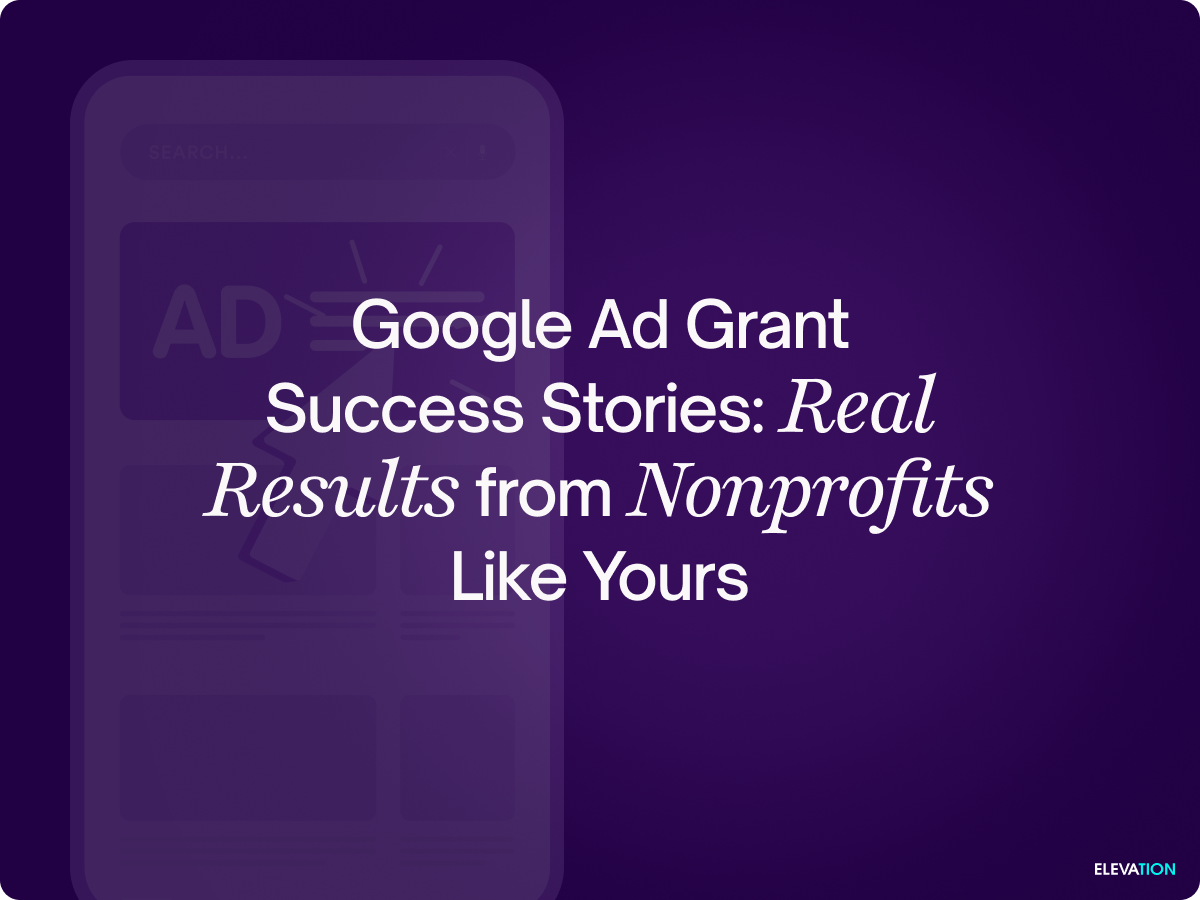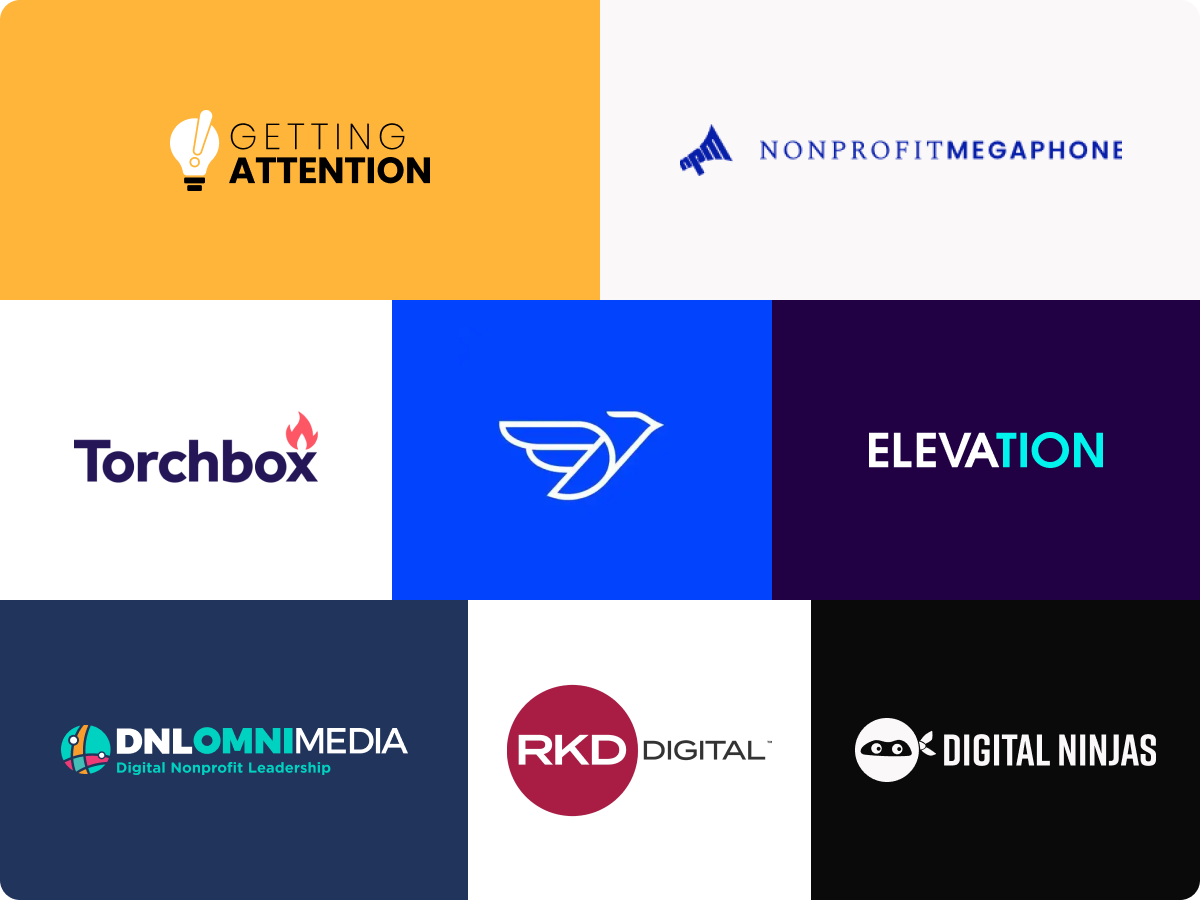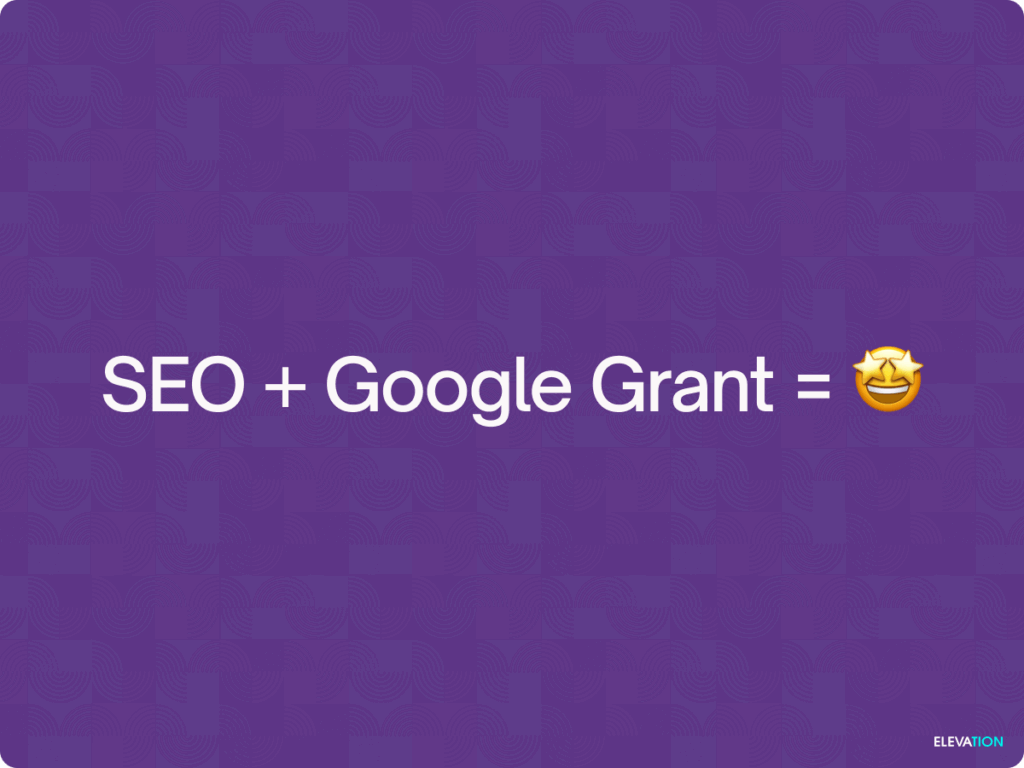
A Deep Dive Into Google Ad Grant SEO
Running Google Ads is a game-changer for nonprofits. But here’s the catch—your ads are only as effective as the landing pages they’re connected to. Nonprofits often overlook the key ingredient that ensures those landing pages succeed at converting visitors into supporters: search engine optimization (SEO).
Google Ads and SEO might appear to be separate strategies, but they are closely intertwined and arguably should be seen as a single strategy. By implementing an effective Google Ad Grant SEO to optimize your website and landing pages, you can enhance ad performance, elevate user experience, and drive more conversions.
What SEO Has to Do With Ads
SEO is typically associated with organic traffic—helping your website rank higher in unpaid search results. But its impact extends far beyond that. When combined with paid advertising, such as Google Ad Grants, it becomes a tool for amplifying the effectiveness of your campaigns.
How SEO and Ads Work Together
- User Relevance
Ads drive traffic to your website or landing page, but high-quality SEO ensures those pages are primed to deliver what users need. If a visitor doesn’t find relevant, engaging content upon clicking your ad, they’ll leave, increasing bounce rates and wasting your ad funds. SEO ensures your content is targeted and valuable.
- Ad Performance Metrics
Google evaluates the user experience (UX) of your landing pages when determining ad placements and costs. SEO helps improve UX through faster page speeds, mobile-friendly designs, and relevant content, making your ads more effective.
- Boosted ROI
SEO increases the likelihood of converting visitors who click on your ads—whether your goal is to collect donations, sign up volunteers, or raise awareness. Every element of a well-optimized page, from strategic keywords to clear CTAs, boosts your return on investment.
Landing Page Quality Score
Quality Score, a metric that ranges from 1 to 10, measures the relevance of your ads and landing pages. For Google Ad Grant users, a strong score is vital to maintain eligibility. Falling below compliance (like a 5% click-through rate) risks losing your grant. The good news? SEO can boost your score by improving relevance and user experience.
SEO Factors That Impact Quality Scores
- Keyword Relevance
If your ad targets “volunteer opportunities in [city],” but your landing page doesn’t include this keyword prominently, Google may ding your Quality Score. Using SEO to create keyword-rich pages ensures relevancy across ads and landing pages.
- Page Experience
A slow, clunky website or poorly structured landing page will lower your score, making your ads less competitive. Proper SEO boosts page performance by optimizing for speed, navigation, and usability.
- Content Alignment
Delivering on the promise of your ad matters. If your ad promotes “tips for fundraising success,” but the landing page is generic or off-topic, users will leave. SEO ensures that landing page content aligns perfectly with ad copy.
Pro Tip:
Track Quality Scores for your campaigns and identify low-performing ads. Revisit the SEO of corresponding landing pages, focusing on keywords, UX, and content clarity to improve scores.
Page Speed & Mobile Optimization
Page speed and mobile optimization are cornerstones of modern-day SEO—and they directly impact your ad campaigns. Nonprofits that don’t invest in these areas risk alienating potential supporters and driving up ad costs.
Why Page Speed Matters
When a potential donor clicks on your ad, they expect your landing page to load quickly. If it takes more than a few seconds, they’re likely to abandon the effort entirely. This not only lowers the chances of a conversion but also negatively affects your Quality Score.
Mobile Optimization in Focus
With over half of web traffic now coming from mobile devices, mobile-friendly sites are crucial. Nonprofits that fail to optimize for small screens unintentionally exclude a significant portion of their audience.
SEO Best Practices for Speed & Mobile:
- Use tools like Google PageSpeed Insights to test your site and implement recommendations.
- Compress images and enable browser caching for faster load times.
- Ensure your site uses responsive design to adapt seamlessly to various screen sizes.
- Optimize font sizes, button placement, and navigation menus specifically for mobile users.
Relevant Content & Keywords
SEO thrives on relevance—it’s the backbone of both organic search rankings and ad performance. Integrating targeted, high-quality content with strategic keywords strengthens your landing pages and makes your ads more effective.
Keyword Strategy for Ads and SEO
The keywords you bid on in your Google Ads should appear naturally within your landing page content. This consistency signals to Google that your page is relevant to user searches, boosting Quality Scores and ad alignment.
Content That Converts
Your landing pages must quickly communicate value. A clear headline, engaging visuals, and straightforward copy that references ad keywords create a seamless experience for visitors.
Example:
If your nonprofit promotes “environmental education programs,” ensure your landing page includes:
- A compelling header, e.g., “Empower the Next Generation with Environmental Education.”
- Supporting content, such as details about your programs, testimonials, and easy donation options.
- Strategic keywords placed naturally throughout the page.
Tracking & Structure
SEO isn’t just about attracting traffic—it plays a vital role in how effectively you can track and analyze campaign performance. A well-optimized site provides better data for understanding visitor behavior and refining your campaigns.
Tools and Tags
Implementing SEO best practices, like structuring your site for analytics tools, ensures you can track user interactions accurately. For example:
- Google Analytics: Tracks user behavior, from page views to goal completions.
- UTM Parameters: Lets you monitor which Google Ad Grant campaigns drive results.
Structured Content
SEO also involves structuring your pages with proper headings (H1, H2, H3) and metadata. This makes it easier for both users and analytics tools to understand your content.
Elevated Example: ABTA Case Study
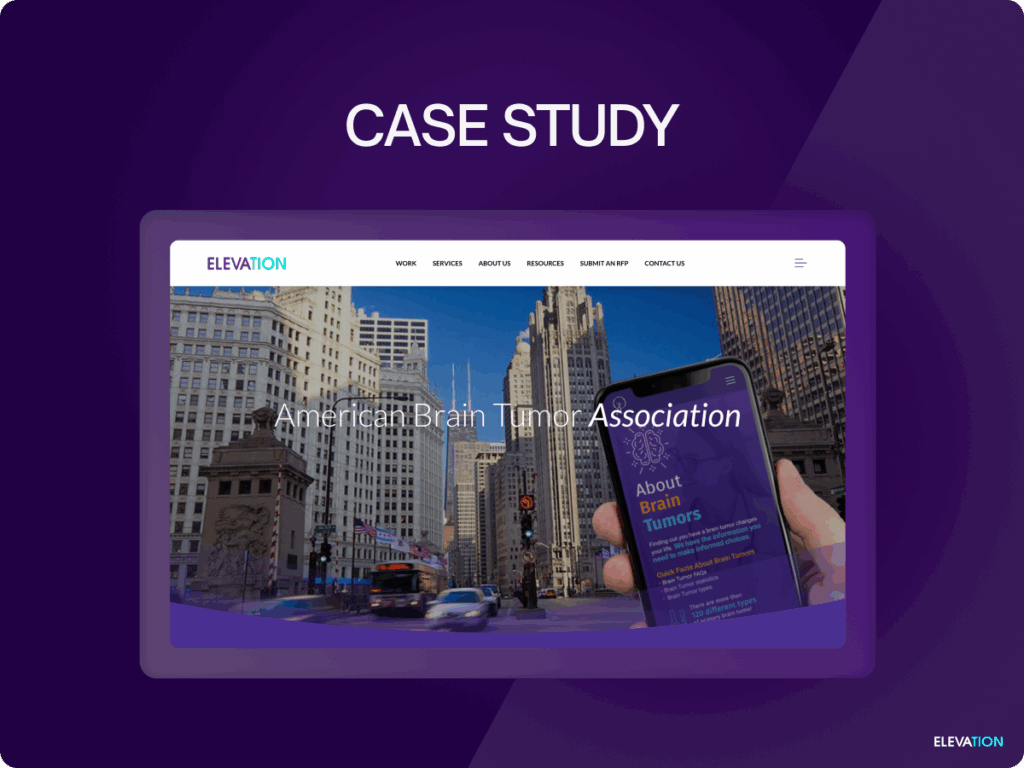
A real-world example of how SEO and Google Ad Grant strategies work together comes from the American Brain Tumor Association (ABTA). Partnering with Elevation, ABTA optimized their website, regained control of their Google Ad Grant, and reached the right audiences to drive meaningful engagement.
The Challenge
ABTA faced a deactivated Google Ad Grant account, limiting their ability to connect with their audience and promote key initiatives like their multi-city BT5K Run. They needed to restore their account, improve ad performance, and ensure their website was optimized to convert traffic into action.
The Solution
Elevation implemented a dual approach, combining SEO and Google Ad Grant management to maximize impact:
- Grant Reactivation & Compliance: Restored ABTA’s Google Ad Grant account, ensuring full compliance and unlocking its potential.
- Paid Search & SEO Synergy: Used paid search marketing to make up for lost time while optimizing the website for organic search visibility.
- Event Promotion: Created targeted display ads to boost awareness and registration for ABTA’s BT5K Run, one of their largest annual events.
- Traffic & Conversion Optimization: Enhanced landing pages with engaging content, clear calls to action, and improved user experience to increase conversions.
The Result
The combined efforts of SEO and Google Ad Grant management delivered impressive results:
- Increased Ad Performance: Click-through rates rose by 45%, reflecting higher-quality traffic.
- Boosted Event Engagement: Display ads drove significant awareness and registrations for the BT5K Run.
- Overall Growth: Web traffic and conversions saw a measurable increase, helping ABTA better fulfill their mission.
For a deeper look at their results, explore the full ABTA case study here.
Demystifying Google Ad Grant SEO
If you’re already running Google Ad Grant campaigns, start auditing your landing pages through an SEO lens. The results could be transformative—bringing your nonprofit closer to achieving its digital goals.
For tailored, expert assistance in aligning SEO with your Google Ads strategy, schedule a consultation with Elevation to amplify your impact today.
